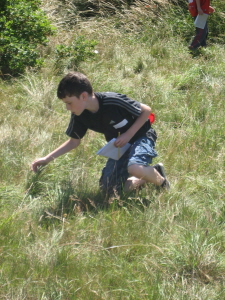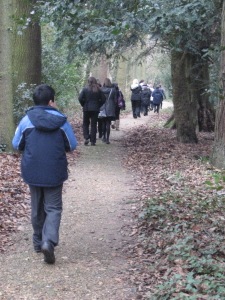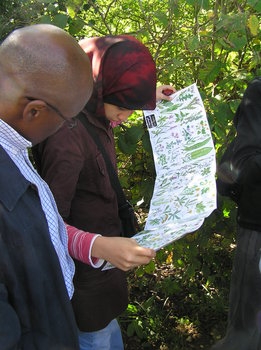- KS2 (7-11) Darwin Inspired Learning
- KS3 (11-14) Darwin Inspired Learning
- Post-16 Darwin Inspired Learning
Make a donation
Help us make the ordinary extraordinary for children, young people and teachers.
KS2 (7-11) Darwin Inspired Learning
 The Charles Darwin Trust has developed four KS2 modules for teachers to explore the work of Darwin with their classes, provided free of charge. Each module consists of three lessons. Introduction document and using these modules.
The Charles Darwin Trust has developed four KS2 modules for teachers to explore the work of Darwin with their classes, provided free of charge. Each module consists of three lessons. Introduction document and using these modules.
Being out-of-doors and having time to think were pivotal to Darwin’s work and many of the activities are structured around an outdoor learning experience. Pupils need to know where to look, observe closely and learn to interpret what they see. On their visit, students should be enouraged to collect evidence and data in different ways.
Health and safety: Teachers should read the appropriate local authority and school guidelines. Before making a visit you should carry out a risk assessment and a preliminary visit. Where a specific issue has been anticipated it is highlighted in the Lesson Plan.
Module 1 - Life cycles
In the relatively controlled environment of his garden Darwin observed his cabbage plants closely. His observations brought the realisation that animal and plant life cycles coincide. Large white butterflies laid their eggs on his cabbages and their caterpillars were attacked by the ichneumon fly which deposited its eggs in their living bodies. Darwin theorised that overlapping life cycles must also be central to the struggle for survival in the natural world.
Module 2 - Understanding the environment
Darwin spent time walking the local lanes, regularly observing the natural world, his notebook always to hand, his eyes and mind sharp to observe the unexpected. Constantly he thought about the reasons for what he saw and asked questions. This unit will encourage the use of the school grounds and beyond, and focus on Darwin’s important ideas regarding species, populations and communities of living organisms.
Module 3 - Struggle for life
Darwin saw the struggle for existence as ruthless, universal and ceaselessly shifting. His weed experiment makes the ordinary seem extraordinary when a patch of common plants become a cruel land where the struggle to survive is paramount, and competition rife. He brings alive the everyday dramas of our pavements, walls and back gardens.
Module 4 - Interdependence
His Beagle voyage, the view from his study window and the countryside around Down House all prompted Darwin to consider why there was such visible diversity of plant and animal life. In his garden experiments and on country walks he discovered a constantly evolving world of interdependent life forms. Opportunities to observe nature in all its diversity are still important today, and raise awareness of the threats human interactions pose to the environment.

